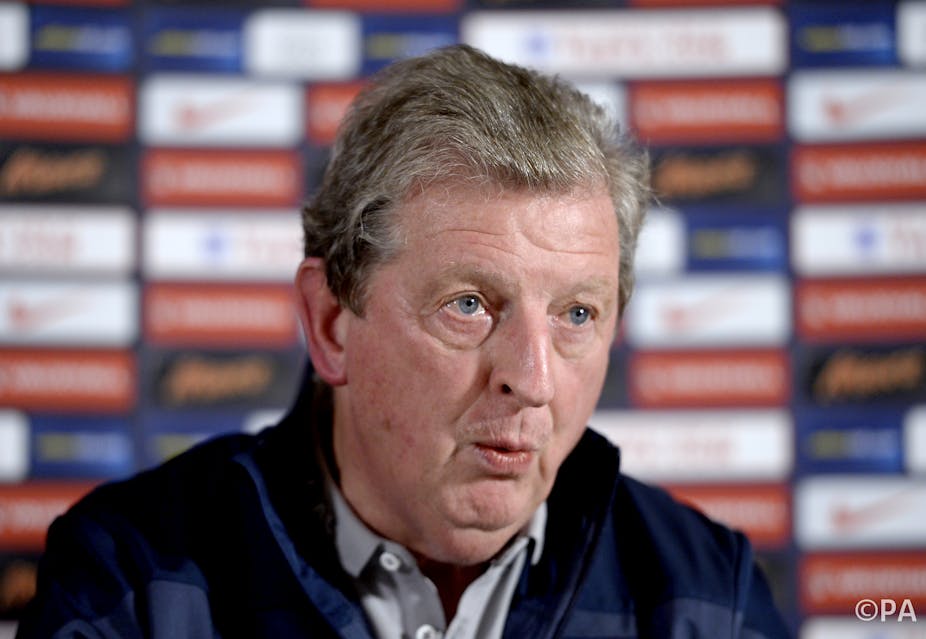The value of “friendly” football internationals is often debatable. Many top players might rather not bother in the context of a busy season, and their club managers will likely agree. International managers and uncapped young players might take a different view, of course.
One exception to this debate is the Scotland v England match. Coming so soon after this year’s bitter and divisive referendum campaign, all eyes are on Glasgow’s Celtic Park on November 18 to see if the in-form Scots can put one over on the Auld Enemy.
As Scottish midfielder Charlie Mulgrew said over the weekend, “there’s never a friendly between Scotland and England and we’re looking forward to that”.
Different trajectories
Psychologically the two teams are in very different places approaching the encounter. The only real success for the England team in the recent Brazil World Cup came off the field. For the first time since 1966, the public relations around the FA successfully managed expectations. In every interview and press release, the message was clear -– this is a young inexperienced team, building for the future, expect little.
Sure enough, little was delivered. England crashed out in the group stages after two defeats and a draw in what was the country’s worst performance in 20 years. This was largely due to the systemic problems in the top tier of football in England which most people at the heart of the game south of the border recognise but are unwilling or unable to resolve.
Despite the hype, the Premier League is fit for only one purpose: the continued prosperity of the Premier League. The England team might be making its way through the Euro 2016 qualifying games without disaster, but the domestic league is unable, in its current form, to support the development of a consistently successful international squad. The manager knows this and so do the players.
Scotland approach the upcoming game in a very different frame of mind. The appointment of Gordon Strachan as manager in 2013 was a bold move. There were fears that Strachan’s close connections to Celtic would render him unacceptable to the other half of Glasgow. But as results and performances have improved, nobody is talking about that now.

Last Friday’s 1-0 defeat of the Republic of Ireland in Glasgow was the latest in the most promising Scotland campaign in years. Scotland had already stretched the World Cup winners in Germany, losing narrowly, drawn against Poland and beaten Georgia. The team lies joint second in the Euro 2016 qualification table with Germany and Ireland, behind Poland. Without question, the Scots are playing good football. The players appear to be responding to their manager in a way which his England counterpart Roy Hodgson must envy.
Two approaches
Both managers are articulate and intelligent, and both have commendable but not outstanding records in management. In fact Hodgson’s record is probably more impressive. But what Strachan has over Hodgson is the insight into the players’ mindset which comes not just from having lived and breathed it, but also having thought deeply about how managerial behaviour impacts on the players.
Strachan appears to have spent more time building a rapport with his team. He has brought new players into the squad to see how they respond and get to know them. He has also sent messages to players currently not in the squad that they are being watched and should not lose their motivation to play for Scotland.
England has tried to appoint this sort of manager in the past with Glenn Hoddle and Kevin Keegan. Both had success, but ultimately failed because the respect that is essential for good communications was missing. Players disliked Hoddle’s view that he could still play better than any of them – they felt he didn’t respect him. Keegan tried too hard to be one of the boys, so they didn’t respect him.
On the other hand Hodgson’s speciality is tactics. In this he shares more with Sir Alf Ramsey than Hoddle or Keegan. And where Ramsey used senior players like Bobby Moore to relay messages to the dressing room, Hodgson uses Wayne Rooney. But while Ramsey had genuinely world-class players at his disposal like Bobby Charlton, Geoff Hurst and Moore, the English Premier League doesn’t produce players like that anymore. The top players that do perform in England are invariably from elsewhere, having first been developed in Spain, Germany or Italy.
This week’s clash between the two sides is a rematch following last year’s fixture at Wembley, which England won 3-2. That was the first time the two sides had met in a friendly since the old tradition of home internationals ended in 1989, putting paid to the oldest fixture in football history.
In the run-up to this week’s game, you would expect Strachan and his players to say all the right things about how there is no place for politics in football. No one will believe them as “God Save the Queen” is booed by 60,000 fans. England will play tentatively, their stars will be harried and pressured and commentators will speak of their collective lack of confidence. Scotland will fail to convert their chances and somehow England will steal a win… As an Englishman who has lived in Scotland for many years, that is my hunch at any rate. Just don’t let anyone tell you it’s a friendly.

